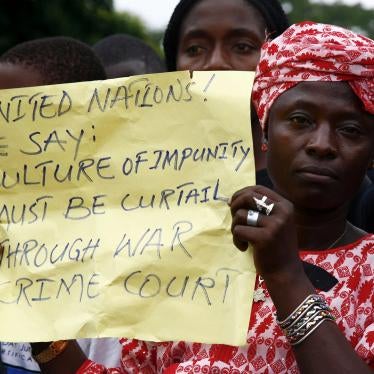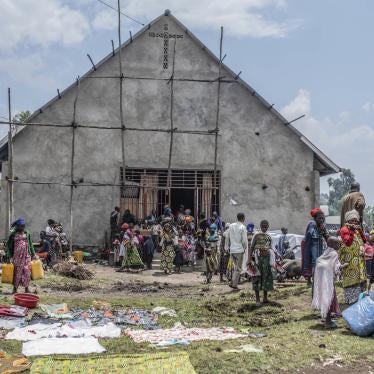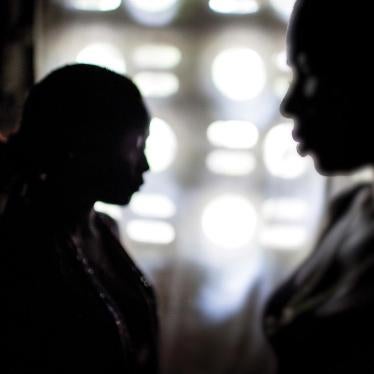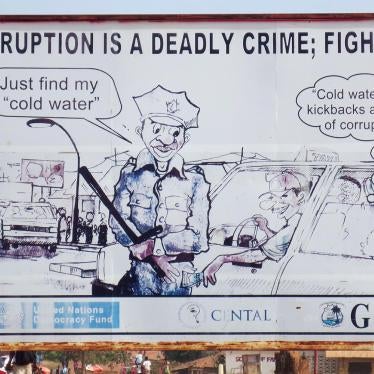It’s often difficult on a short trip to a country to figure out the public mood of the place. Not so in Liberia, where even a brief visit will reveal what’s on people’s minds: corruption.
After just a few days in Monrovia, I was amazed how so many conversations ended up one way or the other on the subject of corruption. Ten years since the end of the country’s bloody civil wars, it seems to be the main subject on everyone’s lips. It’s the hot topic in the markets, on the radio, in the papers, and even on Monrovia’s innovative “chalkboard newspaper,” The Daily Talk (see photo).
It was a perfect moment for Human Rights Watch to release its new report on police corruption and its impact on basic rights, and wandering around the streets the other day, I couldn’t find one market trader who didn’t have an experience like the ones relayed in that report.
The police frequently take the vendors’ goods, and sometimes even lock up individuals, demanding to be paid for the release of both. None of this is according to the law; it’s simply predatory behavior, which undermines the ability of Liberians – many of whom live a precarious existence – to obtain food, health care and education for their children.
Most Liberians didn’t learn about this type of corruption from an international human rights organization, of course, but everyone I met was very pleased Human Rights Watch had taken it up as an issue.
“You have to tell those in power that this is happening to us,” one vendor told me, looking over his shoulder at two policemen who’d stopped a vehicle. “They don’t listen to us.”
Just days after we released the report, the Liberia National Police made public that it was conducting an assessment survey of its practices. It’s too early to tell where the initiative will lead, but here’s hoping it will at least begin to address the issue so many Liberians are concerned about.









